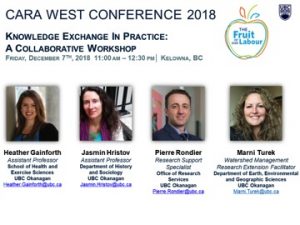Call for Papers CSA 2019, Submission Deadline January 28, 2019
The Sociology of Development Research Cluster of the Canadian Sociological Association invites submissions to the following sessions for the CSA 2019 Annual Conference at Congress in Vancouver June 3-6, 2019.
SOCIOLOGY OF DEVELOPMENT
This open session features papers on the sociology of development, broadly defined. Works examining, but not limited to, the technological, cultural, political and economic dimensions of development, the effects of the interplay of local and global processes and actors on development and social change, the significance of class, gender, and race, ethnicity in the causes and consequences of development, alternative development projects pursued by grassroots movements and/or states, and new theoretical approaches and conceptions of development, are all invited. Papers may explore any unit of analysis local, regional, national, international or world systems.
Organizers: Liam Swiss, Memorial University, lswiss@mun.ca; Jasmin Hristov, University of British Columbia; Andrew Dawson, Glendon, York University; Md Saidul Islam, Nanyang Technological University
Participatory Research Methodologies in Development: Benefits, Challenges, Lessons and Reflections
This session brings together experiences with participatory action research or other innovative participatory methods in the field of development. We invite analyses of the benefits and challenges for both researchers and participants during any stage of the knowledge creation process such as, research design, fieldwork, data analysis, ethical matters, intersubjectivity, and knowledge dissemination. The goal is to reflect critically on the empowering and transformative capacity of participatory methodologies as well as their limitations in order to understand better under what conditions such research approaches deliver the best outcome.
Organizers: Jasmin Hristov, University of British Columbia, jasminmanaus@gmail.com
Call for Abstracts Information: https://www.csa-scs.ca/conference/call-for-abstracts/
Abstract Submission System: http://www.csa-scs.ca/abstract-submissions
Please share the Call for Abstracts among your networks.

